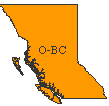Benjamin Frank
Frank
Junior Chimp
    
Posts: 7,069


|
 |
« on: March 12, 2021, 04:45:33 AM » |
|
|
« edited: March 12, 2021, 04:50:28 AM by Frank »
|
I personally think that macro economics is just common sense of following a process of cause and effect, but it does seem to stymie people.
The areas that frequently come up are the false beliefs that ‘checks to rich people are just wasted because they just put the money in the bank and don’t spend it.’ True enough, but this has to do with the Keynesian concepts of ‘the marginal propensity to consume’ and ‘the velocity of money.’
Unnecessarily complicated names which simply mean that
1.people can do two things with money: save it or spend it. The spending is the marginal propensity to consume.
2.When money is saved, the bank doesn’t lock it in a vault. They loan it out. How frequently in a time period that money is loaned out over and over again is the velocity of money.
And, as I’ve discussed at length here, Donald Trump and other opponents of free trade are wrong when they say that America dollars going overseas to pay for imports are ‘lost.’ The people who receive that money (currency traders) sell those American dollars so that foreigners can buy either U.S exports or U.S assets.
The best description I’ve seen of this process is from Tim Harford’s book The Undercover Economist. This process might at first seem random and bizarre, but it’s nothing more than common sense cause and effect. Or, since people have been here have been asking 'who killed JFK?': follow the money.
As is mentioned, this process only works exactly like this when all markets are perfectly competitive because imperfect markets skew the price signals a little because goods and services in these markets don’t sell at the point where supply meets demand. However, that doesn’t alter this description all that much, and, ultimately, the markets still adjust.
“What if other industries were also perfectly competitive? That would mean that for every product, the price equaled the marginal cost. Every product would be linked to every other product through an ultracomplex network of prices, so when something changes somewhere in the economy (there’s a frost in Brazil, for instance) everything else would change – maybe imperceptibly, maybe a lot – to adjust. A frost in Brazil, for example, would damage the coffee crop and reduce the worldwide supply of coffee, this would increase the price coffee roasters have to pay to a level that discourages enough coffee drinking to offset the shortfall. Demand for alternative products, like tea, would rise a little, encouraging higher tea prices and extra supply of tea. Demand for complementary products like coffee creamer would fall a little. In Kenya, coffee farmers would enjoy bumper profits and would invest the money in improvements like aluminum roofing for their houses, the price of aluminum would rise and so some farmers would wait before buying. That means demand for bank accounts and safety deposit boxes would rise, although for unfortunate farmers in Brazil with their failed crops, the opposite may be happening.
That may seem like a ridiculous hypothetical scenario, but economists can measure and have measured some of these effects. When frosts hits Brazil, world coffee prices do indeed rise, Kenyan farmers do buy aluminum roofing, the price of roofing does rise, and the farmers do, in fact, time their investments so that they don’t have to pay too much."
Pages 59-60 (paperback edition.)
|

